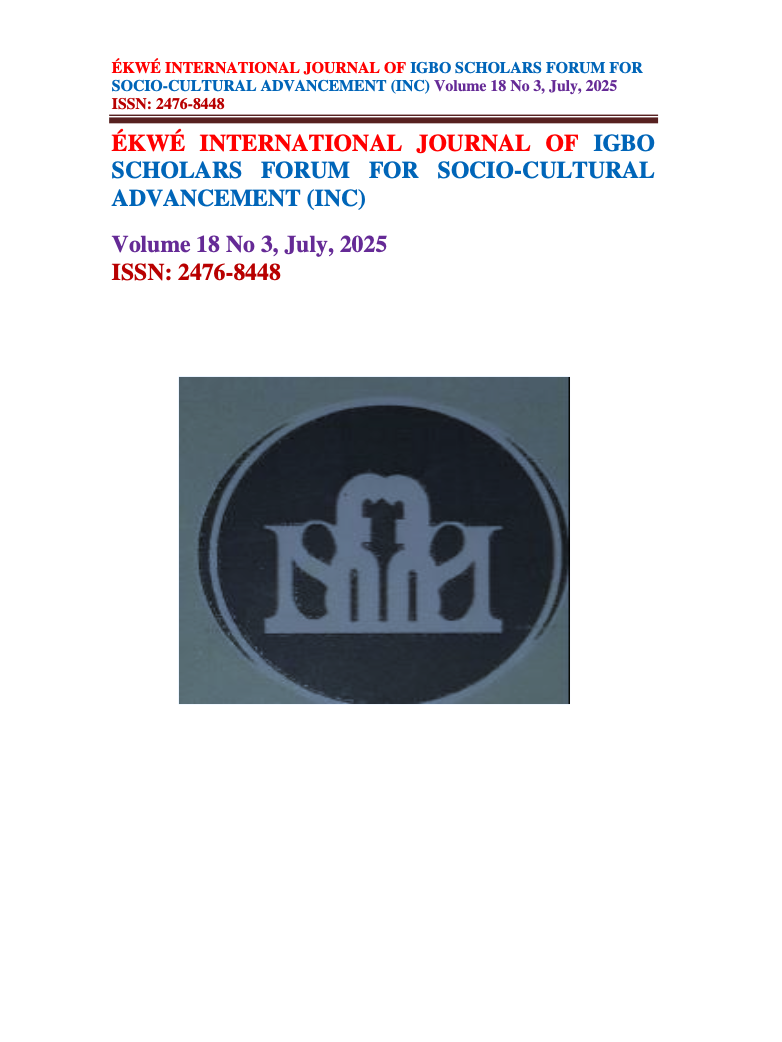INDIGENOUS EPISTEMOLOGIES AND RESEARCH PRACTICES OF IGBO (NIGERIAN) ENVIRONMENTAL COMMUNICATORS
Abstract
There is a growing acceptance of pluralism in knowledge systems, and a desire to integrate non-Western worldviews into the research process, particularly indigenous epistemologies. However, there are tensions surrounding ownership and control of knowledge, and the ethics of knowledge appropriation. These tensions are exacerbated by the often not-acknowledged internal diversity of indigenous communities, which makes thereductive generalization of ‘one’ epistemology problematic. As such, the marginalized indigenous epistemologies may lend to vital understanding and insight into harmonious living with natural ecosystems and thus. Yet, the homogenization of multiple languages, beliefs, and worldviews into ‘indigenous epistemologies’ dismisses these pluralities and invites appropriation by the very hegemonies that have dominated, undermined, or disregarded them. This paper interrogates indigenous epistemologies in the context of research practices of environmental communicators in South East Nigeria, and considers strategies to safeguard, nurture, and empower these epistemologies against outside appropriation. It is based on the qualitative analysis of 15 one-on-one semi-structured interviews from environmental communicators in South Eastern Nigeria. Thus, the participants advocate for a critical deconstruction of dominant governance frameworks in favor of reconstructed systems centered on indigenous epistemologies.


